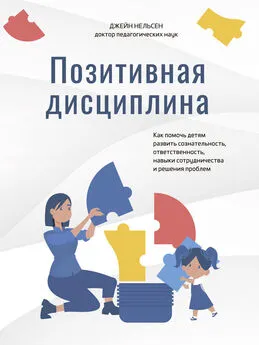Мишель Борба - Чуткие дети. Как развить эмпатию у ребенка и как это поможет ему преуспеть в жизни
- Название:Чуткие дети. Как развить эмпатию у ребенка и как это поможет ему преуспеть в жизни
- Автор:
- Жанр:
- Издательство:неизвестно
- Год:2020
- Город:Москва
- ISBN:9785001691013
- Рейтинг:
- Избранное:Добавить в избранное
-
Отзывы:
-
Ваша оценка:
Мишель Борба - Чуткие дети. Как развить эмпатию у ребенка и как это поможет ему преуспеть в жизни краткое содержание
На русском языке публикуется впервые.
Чуткие дети. Как развить эмпатию у ребенка и как это поможет ему преуспеть в жизни - читать онлайн бесплатно ознакомительный отрывок
Интервал:
Закладка:
21
Шесть из десяти взрослых американцев назвали «крайне серьезной проблемой» неспособность молодежи усваивать элементарные нравственные ценности: честность, уважение и ответственность перед обществом. Масштабный опрос Public Agenda: Americans Deeply Troubled About Nation’s Youth; Even Young Children Described by Majority in Negative Terms // press Release. – June 26, 1997. – http://www.publicagenda.org.
22
Justin McCarthy . Majority in US Still Say Moral Values Getting Worse // Gallup. – June 2, 2015. – http://www.gallup.com/poll/183467/majority-say-moral-values-getting-worse.aspx.
23
International Center for Academic Integrity. The Academic Integrity Policy. – http://www.academicintegrity.org/icai/assets/policy-and-hearing-information_.pdf, accessed January 4, 2016.
24
S. Thoma, M. Bebeau . Moral Judgment Competency Is Declining Over Time: Evidence from 20 Years of Defining Issues Test Data. Доклад представлен American Educational Research Association, 2008.
25
K. R. Merikangas et al . Lifetime Prevalence of Mental Disorders in U.S. Adolescents: Results from the National Comorbidity Survey Replication – Adolescent Supplement (NCS-A) // Journal of the American Academy of Child & Adolescent Psychiatry 49. – No. 10 (October 2010). – P. 980–989.
26
Melissa Healy . Mental Illness in Youth: A Common Struggle // Los Angeles Times. – May 19, 2013. – P. 16A.
27
В России по статистике ВОЗ депрессия диагностируется у каждого десятого подростка, что сходно с общемировыми тенденциями.
28
American Psychological Association. American Psychological Association Survey Shows Teen Stress Rivals That of Adults. – February 11, 2014. – http://www.apa.org/news/press/releases/2014/02/teen-stress.aspx.
29
Под «разрывом эмпатии» понимается состояние людей, когда они чужую боль чувствуют, но ничего не предпринимают.
30
Еженедельный американский телевизионный журнал новостей/реалити-шоу, которое транслируется на канале NBC.
31
Моральное воображение – умение представлять мысли и чувства других людей.
32
Дистресс – негативные переживания, оказывающие деструктивное влияние на человека, его самочувствие и здоровье.
33
Christy Gibb . Fighting Childhood Aggression // www.changemakers.net. – P. 16.
34
Kimberly A. Schonert-Reichl, Veronica Smith, Anat Zaidman-Zait, Cyle Hertzman . Promoting Children’s Prosocial Behaviors in School: Impact of the ‘Roots of Empathy’ Program on the Social and Emotion Competence of School-Aged Children // School Mental Health 4 (2011). – P. 1–21. – http://cemh.lbpsb.qc.ca/professionals/RootsofEmpathy.pdf.
35
Из личного интервью Мэри Гордон автору, Вашингтон, округ Колумбия, 31 октября 2014 года.
36
Цитата Мэри Гордон: Mary Gordon. Roots of Empathy: Changing the World Child by Child. – New York: The Experiment, 2009. – P. xi.
37
Личное интервью Кейна автору в начальной школе Маури, Вашингтон, округ Колумбия, 30 октября 2014 года.
38
W. F. Arsenio, S. Cooperman, A. Lover . Affective Predictors of Preschoolers’ Aggression and Peer Acceptance: Direct and Indirect Effects // Developmental Psychology 36 (2000). – P. 438–448; C. Izard, S. Fine, D. Schultz, A. Mostow, B. Ackerman, E. Youngstrom . Emotion Knowledge as a Predictor of Social Behavior and Academic Competence in Children at Risk // Psychological Science 12. – No. 4 (January 2001). – P. 18–23; S. A. Denham, M. McKinley, E. A. Couchoud, R. Holt . Emotional and Behavioral Predictors of Preschool Peer Ratings // Child Development 61. – No. 4 (August 1990). – P. 1145–1152.
39
Дэниел Гоулман . Эмоциональный интеллект. – М.: Манн, Иванов и Фербер, 2020; Daniel Goleman. Emotional Intelligence: Why It Can Matter More Than IQ. – New York: Bantam Books, 1995. – P. 97.
40
Готтман Д., Деклер Д. Эмоциональный интеллект ребенка. Практическое руководство для родителей.М.: Манн, Иванов и Фербер, 2018.
41
Victoria J. Rideout, Ulla G. Foehr, Donald F. Roberts . Generation M2: Media in the Lives of 8- to 18-Year-olds. – Menlo Park, CA: Kaiser Family Foundation, January 2010.
42
Greg Toppo . Techie Tykes: Kids Going Mobile at Much Earlier Age // USA Today. – November 2, 2015. – 3B.
43
Иллюстрация 4.6 из доклада Нильсена (Nielsen), процитированного в: Vicki Glembocki. How to Raise a People Person // Parents. – January 2015. – P. 50–53.
44
Not All Screen Time Is a No-No for Infants // Time. – October 26, 2015. – P. 18.
45
Stephanie Goldberg . Many Teens Send 100-Plus Texts a Day, Survey Says // CNNTech. – April 21, 2010. – http://www.cnn.com/2010/TECH/04/20/teens.text.messaging, accessed Dec. 6, 2010.
46
Опрос USC Annenberg Center for the Digital Future: Family Time Decreasing with Internet Use. – 2009. – http://www.digitalcenter.org/pdf/cdf_family_time.pdf, accessed August 8, 2009.
47
J. Dunn, J. Brown, C. Slomkowski, C. Tesla, L. M. Youngblade . Young Children’s Understanding of Other People’s Feelings and Beliefs: Individual Differences and Their Antecedents // Child Development 62. – No. 6. – 1991. – P. 1352–1366; Ana Aznar, Harriet R. Tenenbaum . Gender and Age Differences in Parent-Child Emotion Talk // British Journal of Developmental Psychology 33. – No. 1. – 2014. – P. 148–155.
48
S. Adams, J. Kuebli, P. A. Boyle, R. Fivush . Gender Differences in Parent-Child Conversations About Past Emotions: A Longitudinal Investigation // Sex Roles 33. – No. 5. – 1995. – P. 309–323; A. R. Eisenberg . Emotion Talk Among Mexican American and Anglo American Mothers and Children from Two Social Classes // Merrill-Palmer Quarterly 45. – No. 2. – 1999. – P. 267–284; R. Fivush . Exploring Sex Differences in the Emotional Content of Mother-Child Conversations About the Past // Sex Roles 20. – No. 11. – 1989. – P. 675–691.
49
C. A. Cervantes, M. A. Callanan . Labels and Explanations in Mother-Child Emotion Talk: Age and Gender Differentiation // Developmental Psychology 34. – No. 1. – 1998. – P. 88–98.
50
Поллак У. Настоящие мальчики. Как спасти наших сыновей от мифов о мальчишестве. М.: Ресурс, 2016.
51
William Pollack . Real Boys. – New York: Henry Holt and Co., 1998. – P. 346.
52
S. Adams, J. Kuebli, P. A. Boyle, R. Fivush . Gender Differences in Parent-Child Conversations About Past Emotions // Sex Roles. – 1995; A. R. Eisenberg. Emotion Talk Among Mexican American and Anglo American Mothers and Children from Two Social Classes // Merrill-Palmer Quarterly 45. – No. 2. – 1999.
53
62 % детей считают, что родители их не слушают, потому что отвлекаются, по данным опроса журнала Highlights «2014 State of the Kid» с участием 1521 ребенка от 6 до 12 лет: National Survey Reveals 62 % of Kids Think Parents Are Too Distracted to Listen // Highlights. – October 8, 2014. – https://www.highlights.com/newsroom/national-survey-reveals-62-kids-think-parents-are-too-distracted-listen.
54
Jenny S. Radesky, C. J. Kistin, B. Zuckerman, K. Nitzberg, J. Gross, M. Kaplan-Sanoff, M. Augustyn, M. Silverstein . Patterns of Mobile Device Use by Caregivers and Children During Meals in Fast Food Restaurants // Pediatrics 133. – No. 4. – March 10, 2014. – P. e843– e849; Perri Klass . Parents, Wired to Distraction // New York Times. – March 10, 2014. – http://well.blogs.nytimes.com/2014/03/10/parents-wired-to-distraction, accessed December 9, 2014.
55
Dimitri Christakis et al . Audible Television and Decreased Adult Words, Infant Vocalizations, and Conversational Turns: A Population-Based Study // Archives of Pediatrics and Adolescent Medicine 163. – No. 6. – 2009. – P. 554–558.
56
Christakis et al. Audible Television.
57
Matthew A. Lapierre, Jessica Taylor Piotrowski, Deborah L. Linebarger . Background Television in the Homes of US Children // Pediatrics 130. – No. 5. – September 2012. – P. 1–8.
58
Marvin L. Simner . Newborn’s Response to the Cry of Another Infant // Developmental Psychology 5. – No. 1. – July 1971. – P. 136–150. Симнер первым продемонстрировал, что новорожденные плачут, услышав крик других младенцев в записи. Также он подтвердил, что плач – это не просто реакция на раздражающий стимул, потому что младенцы не плакали так же часто при прослушивании равных по громкости и интенсивности нечеловеческих звуков.
59
G. B. Martin, R. D. Clark . Distress Crying in Neonates: Species and Peer Specificity // Developmental Psychology 18. – No. 1. – 1987. – P. 3–9.
60
Daniel Goleman . Researchers Trace Empathy’s Roots to Infancy // New York Times. – March 28, 1989.
61
T. Farroni, G. Csibra, F. Simion, M. H. Johnson . Eye Contact Detection in Humans from Birth // Proceedings of the National Academy of Sciences 99. – No. 14. – 2002. – P. 9602–9605.
62
Richard J. Davidson, Sharon Begley . The Emotional Life of Your Brain. – New York: Penguin, 2013. – P. 35–36.
Читать дальшеИнтервал:
Закладка:










